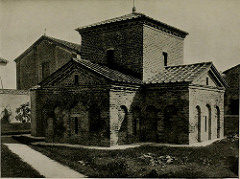
Even before the recent recession, debt and spending were problems for many households. According to the Federal Reserve statistics on consumer debt, revolving debt was at its highest in 2007, and peaked again in the second quarter of 2009 to over 900 billion dollars. The only way for consumers to eliminate their debt is to repay it and learn to control spending. Whether we are in the midst of an economic crisis or not, controlling spending is a learned behavior and starts with living within your means and learning to use your income more effectively.
The key to controlling spending begins with examining spending habits and comparing them to available income. Most people do not want to hear the words “household budget” but knowing the amount of money coming in and the amount of money going out is essential to controlling spending and ultimately, learning to save. If you embrace the idea of a budget as being financially smart, rather than limiting, you will find that controlling your money is a rewarding practice.
The best way to achieve this is by tracking expenses. You can utilize computer software, a smart phone application, or simply put pen to paper. Make a note of income and fixed expenses like housing, car payments, insurance, utilities, and so forth. Keep track of all purchases, including eating out, coffeehouse indulgences, clothing purchases, and so on. Categorize your expenses so you can see exactly where your money is going and how much is left over for saving.
When you have a clear picture of income versus expenses, you can begin to examine ways to reduce your spending. Start with consumable expenses such as daily lattes, wasted grocery purchases, and other items that you regularly consume but could do without. You don’t need to deprive yourself of small treats but see if you can provide them to yourself by cheaper means. For example, brew your coffee at home, pack your lunch, and plan your dinners and grocery purchases so they are used and not wasted.
Next, see if there are ways to reduce regular expenses. For instance, can you lower your monthly cell phone bill by reducing the rate plan or changing carriers? What about your cable bill, car insurance, and so forth? Look for ways to get the most value for your dollar or even consider eliminating certain services all together. When you see a black and white picture of what these conveniences are costing you, you may be more inclined to reduce or eliminate them.
Do away with the convenience of credit cards. If you really want to control your spending, carry only cash. It is difficult to keep track of your spending when you use plastic to pay for every purchase. You don’t actually see the damage until you receive your bill and many people don’t spend enough time looking over their monthly statement. If you carry a balance on any card and pay only the minimum amount due, you are spending money on interest every month that should be in your pocket. If cash isn’t an option, use only your bank debit card for day-to-day purchases and work on paying down your credit card balances.
Apply the “wait and see” rule to all non-essential purchases. This means that before you buy something, decide to simply wait and see if you still need or want it in two week. Many consumer purchases are impulse buys and the best way to avoid them is to simply wait and see if the purchase still makes sense after a few weeks.
Those purchases that you determine do need to be made should be made only after much research. Reconsider the way you shop. Comparison shopping is a great way to find the best price on whatever you buy. Depending on what you need, you may be able to get a better deal by buying used or refurbished. Look for essential items on sale and never pay full retail price. Use the money you save by researching and comparison shopping to further reduce your credit card debt or to build savings.
If you have recorded your income and expenses and find that there is not enough money to pay for life essentials, you may have to make sacrifices. You may have to eliminate bills by cancelling phone and cable services, gym memberships, or other non-essential expenses. If you are struggling with debt and simply reducing your spending isn’t enough to alleviate financial stress, you may need the help of a professional money manager or debt reduction service. Be cautious of who you work with and only deal with reputable companies.
Learning to control your spending brings greater financial independence in the long run. By spending less, you can use the money you save to pay off debt and build savings. It takes time and a commitment to changing your spending habits but it brings greater peace of mind and relief from money woes over time.
Find More Money Woes Articles
You must be logged in to post a comment